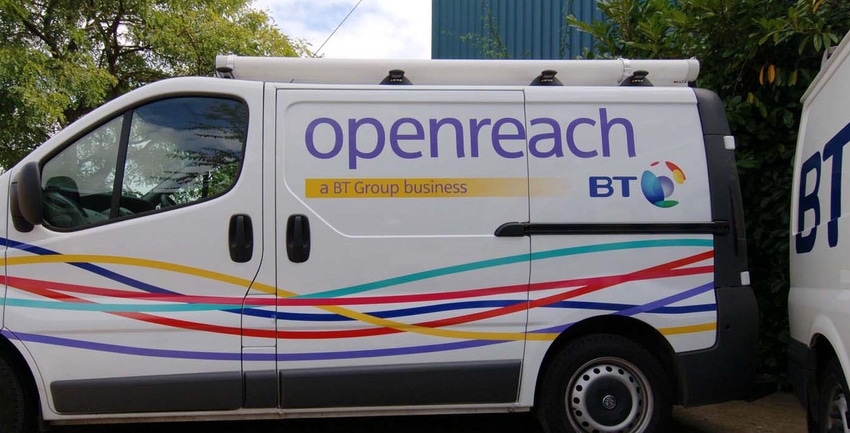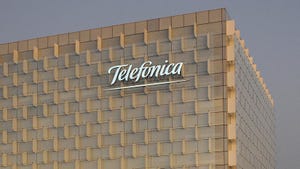Possibly the only more consistent source of telecoms news than the announcement of a new 5G partnership is the ongoing spat between BT and its wholesale customers.
August 16, 2016

Possibly the only more consistent source of telecoms news than the announcement of a new 5G partnership is the ongoing spat between BT and its wholesale customers.
With the exception of Virgin Media and one or two niche players, if you want to offer consumer broadband in the UK you need to lease fixed line capacity from BT via its dedicated wholesale division Openreach. The thing is BT is also a major consumer broadband supplier itself, so the likes of Sky, Vodafone and TalkTalk are concerned it keeps the choicest fixed line morsels for itself and offers them the crumbs off its table.
As a result they have been engaged in a protracted lobbying campaign to get Openreach separated from BT, with the stated aim of ensuring there’s no conflict of interest. BT, as you might expect, isn’t keen on this idea and consistently pleads innocence on the charge, while also insisting it’s doing a good job of keeping the network up to date.
In its latest review UK telecoms regulator Ofcom decided not to totally separate Openreach, but did rule it should become a legally independent entity with its own board, etc. This compromise was apparently not enough for the Openreach customers, so they got together to launch the Fix Britain’s Internet lobbying campaign, using the time-honoured technique of claimed altruism to further their own business agendas.
BT CEO Gavin Patterson is not happy with some of the techniques used by this group, so he wrote to Vodafone CEO Vittorio Colao, Sky CEO Jeremy Darroch and TalkTalk CEO Dido Harding to ask them to get their facts straight. The correspondence was first reported by the FT but Telecoms.com has received excerpts of the letter independently.
Patterson apparently sent copies of the letter to Ofcom CEO Sharon White and the Minister for Culture, Media and Sport Karen Bradley, in which he asked for a “proper fact-based debate”, claiming the Fix Britain’s Internet website “paints an unfairly diminished view of connectivity across the UK and makes a number of misleading statements.” Inevitably he too claims to have the public interest at heart and just doesn’t want people to be “misled”.
Among the specific claims Patterson has a problem with are: ‘BT spends more on buying the rights for televised football than it invests in Britain’s infrastructure,’ since the 2015/16 BT annual report stated BT allocated around three times as much to Openreach capex (£1.447 billion) as it did on sports rights (£563 million).
It seems that claim has now been amended to read “BT is spending billions buying the rights for televised football, rather than investing this money in Britain’s broadband infrastructure”. This may no longer be misleading but unless the campaign is suggesting BT should only invest in Openreach and nothing else it doesn’t really prove much. Another claim seems to echo those of MP Anna Soubry, and BT treats it with similar disdain.
One more of the ‘5 Things You Need To Know’ on the website is ‘BT has kept Openreach reliant on copper rather than investing in state of the art pure fibre like other countries. Copper is up to 100 times slower and far less reliable’. To this Patterson said it: “…overlooks the over £3bn of Openreach investment in fibre broadband since 2008 to support a strategy of delivering fibre with faster speeds to more people, more quickly than any other roll out in the world,” and “It is wrong to dismiss technologies like FTTC and Gfast as being ‘copper’”.
Patterson concluded: “This discussion should be based on the facts and conducted in a constructive and serious spirit. With this in mind, I hope you will revisit some of the statements.”
It’s easy to feel some sympathy towards businesses forced to lease infrastructure from their main competitor and, as our earlier story on consumer broadband pricing found, BT could clearly charge consumers less too. But in the use of inaccurate or misleading claims to further its agenda the Fix Britain’s Internet campaign does nobody any favours, least of all itself.
UPDATE 16:00 17 August 2016 – The recipients of Patterson’s letter have responded with one of their own, which you can view here.
About the Author(s)
You May Also Like







.png?width=300&auto=webp&quality=80&disable=upscale)

.png?width=300&auto=webp&quality=80&disable=upscale)
_1.jpg?width=300&auto=webp&quality=80&disable=upscale)



.png?width=800&auto=webp&quality=80&disable=upscale)